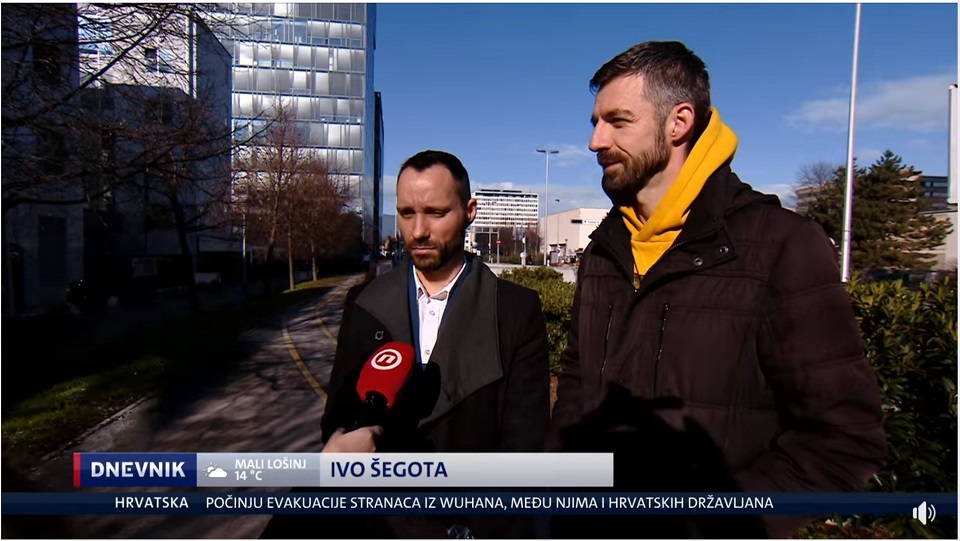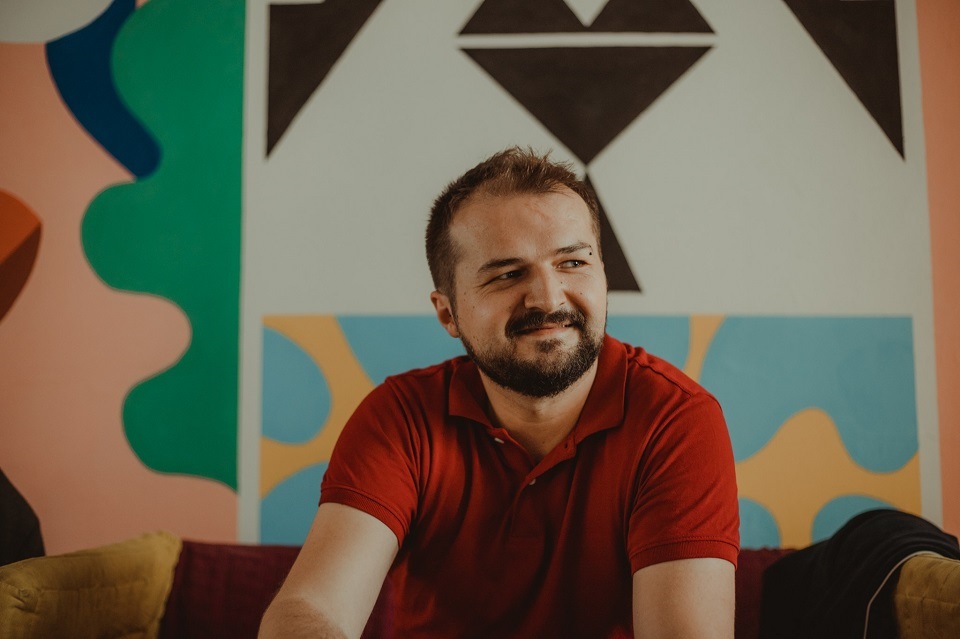Constitutional Court to Discuss COVID Certificates on Tuesday
ZAGREB, 20 Dec 2021 - Croatia's Constitutional Court will on Tuesday consider the constitutionality of the digital COVID passes for access to hospitals and the mandatory vaccination against coronavirus in healthcare and social welfare institutions.
The topic of COVID certificates in the whole public sector will not be on the agenda, as the government has not yet notified the Court about its position on the matter, the Constitutional Court said on Monday, adding that it had sent a reminder to the government concerning that topic.
For more on politics, follow TCN's dedicated page.
Šeparović Reelected Constitutional Court President
ZAGREB, 11 Oct 2021 - The Constitutional Court on Monday re-elected its president Miroslav Šeparović for another four-year term in office, the court said in a press release.
Šeparović has been at the helm of the court since 2016. His new term expires on 12 October 2025.
The president of the Constitutional Court is elected at a closed session by secret ballot, and seven out of 13 votes are necessary for the Court's head to be chosen. Šeparović has been head of the Constitutional Court since 2016. He was first elected in June 2016, and in October 2017 he was re-elected for a term of four years.
Šeparović told Hina today that the aim of his new term "is to boost the efficiency of the Constitutional Court" and improve the court's ratings.
Šeparović, born in the town of Blato on the island of Korčula on 18 July 1958, graduated from the Law School of the University of Zagreb in 1981. In 2013 he earned a doctoral degree.
He was the justice minister from 1995 to 1998 and performed some other high-level public duties.
For more on politics, CLICK HERE.
Croatia Constitutional Court: Same Sex Couples Can Be Foster Parents
The Croatia Constitutional Court has decided: same-sex couples in Croatia have the right to be foster parents on the same terms as everyone else.
Croatia Court Decision Gives Same Sex Couples Foster Parent Rights
Croatian courts and other competent authorities are required to allow same-sex couples to provide foster care on the same terms as other qualified applications. The Constitutional Court decided this by evaluating as many as eight proposals and requests to review the constitutionality of the Foster Care Act and its provisions for removing same-sex persons living in formal and informal life partnerships from the circle of potential foster parent applicants.
The Constitutional Court did not repeal the challenged legal provisions, arguing that this would create a legal loophole, but stated unequivocally that the exclusion of same-sex couples from foster care was discriminatory and unconstitutional, and provided clear instructions to the courts, social welfare centers and other decision-making bodies regarding these issues and indicated they must not exclude applicants based on their life partnership status.
High Court Found That Legal Provisions ‘Silenced’ Same Sex Partners
“The Constitutional Court found that the impugned legal provisions which left out (‘silenced’) a certain social group produces general discriminatory consequences against same-sex persons living in formal and informal life partnerships, which is constitutionally unacceptable,” points out in the summary of the Constitutional Court's decision.
It is further stated that discriminatory effects cannot be eliminated or replaced by the intervention of the Constitutional Court in the existing content of the law according to Ivanka Toma/Jutarnji List on February 7, 2020.
“Namely, the Foster Care Act has a legitimate purpose - the protection of the interests and well-being of socially disadvantaged persons - and in this respect is not in conflict with the constitution. The mere repeal of the impugned legal provisions would lead to a gap in the existing model of public foster care service and would have adverse consequences for the rights and interests of foster care users. Therefore, the Constitutional Court did not accept the proposals and the request for review of conformity with the constitution of the disputed articles of the Foster Care Act,” their decision reads.
Constitutional judges stressed that, despite not intervening in the legal text, "courts or other competent bodies that directly decide on individual rights and obligations of citizens in resolving individual cases are obliged to interpret and apply laws in accordance with their meaning and legitimate purpose, to make those decisions on the basis of the constitution, laws, international treaties and other sources of law."
“In the present case, this means that the impugned legal provisions are obliged to interpret and apply in a way that will enable all persons under equal conditions to participate in public foster care service, regardless of whether the potential foster parent lives in an informal or formal life partnership,” according to the Constitutional Court's unambiguous message.
Constitutional Court President Miroslav Šeparović says the Kožić-Šegota case, in which the Administrative Court gave them the right to be foster parents, and the Social Welfare Center’s refusal to enforce the court's decision had had no bearing on their decision.

Gay Life Partners Ivo Šegota and Mladen Kožić in January after second foster care rejection. | Nova TV
Administrative Court Decision Did Not Influence Constitutional Court Decision
“The Constitutional Court has been reviewing this law for several months and the decision of the Administrative Court in no way influenced the decision of the Constitutional Court. But we have indicated that courts and administrative bodies are obliged to act in accordance with the Constitution and international regulations and must interpret laws so that no social group is discriminated against,” added Šeparović.
Regarding the Kožić-Šegota case, he pointed out that the Social Welfare Center should have acted on the decision of the Administrative Court which allowed the couple to be foster parents without this Constitutional Court decision. However, the Constitutional Court decision further obligates them to honor the lower court’s decision, and notes that this same-sex couple must not be discriminated against and that they can be foster parents on the same terms as anyone else who meets the legal requirements.
Ivo Šegota and Mladen Kožić, who are gay life partners, applied to the Social Welfare Center to become foster parents three years ago. After rejecting their application, the center explained that the couple cannot foster children because the law does not allow them to do so as life partners. Last December, the Administrative Court handed down a historic verdict which stated that life partners could be foster parents. However, their request was rejected again by the Social Welfare Center in January.
The President of the Constitutional Court recalls that, under the Constitutional Act of the Constitutional Court, Constitutional decisions must be enforced, and the government is obliged to ensure compliance.
“The point of this decision is that opportunity to provide foster care service must be given to everyone under the same conditions, regardless of whether the potential foster parents are of same-sex orientation. This does not mean that they are privileged, but their foster care must be allowed if they meet the legal requirements,” explained Šeparović.

Daniel Martinović | Coordinator for Dugine obitelji (Rainbow Families)
Dugine Obitelji (Rainbow Families) Official Statement
Daniel Martinović, Coordinator at Dugine obitelji (Rainbow Families), released the following statement:
“Today's Constitutional Court decision states that the Foster Care Act must be interpreted to include life partners as equals as other foster parents, and that this is the only correct interpretation of the act.”
“The decision recognizes and prevents discrimination against life partners in the future and does what politicians in Croatia have not accomplished for years. This is a positive leap forward for the equality for all citizens of the Republic of Croatia, regardless of their sexual orientation or gender identity.”
“The LGBT community has once again fought for its rights alone, persistently and together. Our courage and insistence on a fairer society can hopefully be a milestone for other marginalized groups in our society.”
Croatia Constitutional Court Decision Ends Three Year Court Battle
Information on the December 2019 court decision can be found here. Details about the Social Welfare Center’s January 2020 rejection of the couple’s second foster care application can be found here.
A history of the couple's efforts to become foster parents and information on the LGBT rights movement in Croatia can be found here.
To learn more about the efforts of Rainbow Families (Dugine obitelji), check out their website and Facebook page.
The Croatia Constitutional Court decision (in Croatian):
Odluka Ustavnog suda o udom... by Index.hr on Scribd


